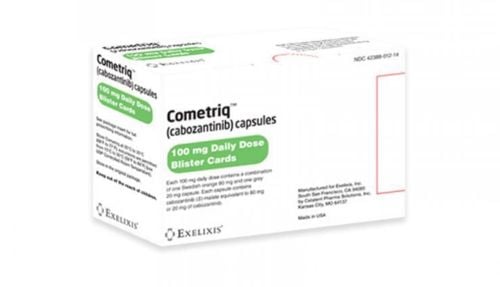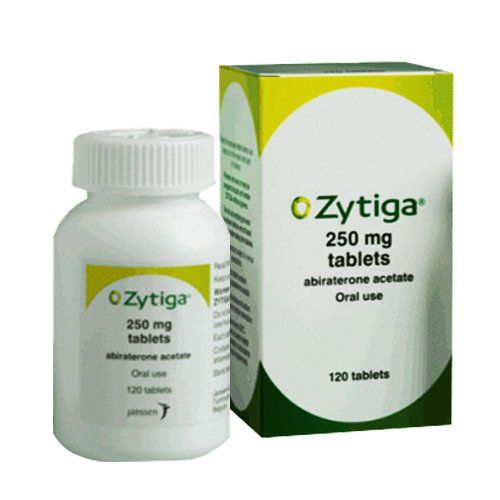This is an automatically translated article.
The drug Iobenguane with the mechanism of stopping the growth of cancer cells has been used in cancer treatment for quite a long time. However, not many people know the mechanism of action as well as how the drug works in the body. So what is the use of Iobenguane, let's find out with Vinmec.com in the article below.
1. Uses of Iobenguane I-131
What is Iobenguane? Iobenguane I-131 is manufactured based on a model of the neurotransmitter norepinephrine (NE) in vivo. Like norepinephrine, Iobenguane I-131 accumulates in some adrenal tissues.
When using this drug Iobenguane I-131 will accumulate in cancer cells in the adrenal tissue and the radiation particles in the drug will prevent the growth of cancer cells and cause them to die.
2. How to use Iobenguane I-131
Drugs administered intravenously Women should be tested for pregnancy before using the drug Due to the radioactive nature of Iobenguane I-131, caregivers or relatives who come into contact with the patient should be consulted. about radiation precautions. You should drink 2 liters of water a day before and for 7 days after taking the medicine. With each dose of Iobenguane I-131, the patient will be given inorganic iodine starting at least 24 hours before and continuing for 10 days after that. The drug can interact with some other drugs, these drugs should not be taken. for 7 days after treatment, those medications include phentermine, tramadol, reserpine, labetalol, venlafaxine, phenelzine, many antidepressants, and other supplements. Before using any dietary supplement, make sure you have been consulted and approved by your doctor.
3. Side effects when using Iobenguane i-131
3.1. This is one of the important factors in minimizing infection when the body is injured, so when the number of white blood cells decreases, the risk of infection increases many times. Whenever you experience symptoms such as fever (over 38 degrees Celsius), sore throat, flu, cough, difficulty breathing, or slow wound healing while using Iobenguane, please inform your doctor and visit medical facilities.
Some ways to reduce the risk of infection such as hand washing, good personal hygiene including sick people and caregivers, limiting contact with people with symptoms of cough, fever, flu to reduce risk of infection. ,...
3.2. Decreased platelet count As a component involved in the blood clotting process of the body, when the platelet count is low, the risk of bleeding increases, one of the injuries that greatly affects the health and process. treatment of cancer patients. Patients should be careful with symptoms such as nosebleeds, bleeding gums, blood in stools or urine, as these may be side effects caused by Iobenguane.
In patients with extremely low platelet counts, treatment may need to be interrupted and platelet transfusions should be stopped immediately. Patients should limit activities or sports with high risk of injury, do not use drugs such as aspirin, non-steroid anti-inflammatory drugs, ... without the permission of the doctor.
3.3. The number of red blood cells decreases When this condition occurs, the patient may experience symptoms such as fatigue, weakness, shortness of breath or chest pain ... With the number falling too deeply, it is possible that the patient will be Indications for red blood cell transfusion before continuing drug therapy.
3.4. Fatigue Fatigue is a common symptom during cancer treatment that doesn't even go away with rest. During treatment and for the time after, always schedule activities for the day to make sure you don't overexert yourself. Exercise, gentle walking is also a way to improve health and limit fatigue
3.5. Nausea and vomiting These are symptoms that can be experienced after using the drug. These symptoms vary in severity from person to person. To limit you can change your diet, activities, limit eating foods that contain a lot of fat and fat. Or fruits that contain a lot of acid such as oranges, lemons, etc. When nauseated, you can use dilute salt water or ginger juice to reduce this symptom.
3.6. Causes liver toxicity This risk is controlled and checked regularly through routine blood tests. When symptoms such as yellow skin or eyes, dark urine or persistent abdominal pain appear, seek medical attention immediately and contact your doctor.
3.7. Dry mouth Iobenguane can cause dry mouth, discomfort and affect your ability to speak, swallow and oral health. Some tips to control this side effect include:
Brush your teeth regularly with a fluoride toothpaste. Flossing Chew gum or suck on sugar-free candy to stimulate saliva production. Gargle regularly with filtered water or physiological saline to keep moisture 3.8. Salivary gland infection Some symptoms can be encountered when salivary gland infection such as: pain, tenderness, redness, swelling of the infected salivary gland
3.9. During cancer treatment, nutrition is very important, but when taking Iobenguane, it can affect eating, reduce appetite and change taste. Some ways to improve eating status such as:
Split meals, one can eat 5-6 meals a day instead of 3 meals as usual. Full complement of nutrient groups Besides eating can Consult your doctor about the use of dietary supplements if the daily diet is not nutritious. Avoid foods with strong or unpleasant flavors, limit frozen foods May enhance the taste of food. food by using natural spices such as rosemary, basil,... 3.10. Diarrhea Mitigating this situation can use some suggestions such as:
Limit foods high in fiber, increase white meats. Soluble fiber can be used to limit diarrhea, some foods rich in soluble fiber such as apple sauce, canned fruit, white rice, etc. Drink plenty of water daily, limit foods drink alcohol or caffeine. Less common but important side effects such as
Secondary cancer : there is a small risk of a secondary cause of some diseases such as acute leukemia, or other cancers due to Iobenguane treatment in a single time. long time. Hypothyroidism: Iobenguane can cause hypothyroidism, which is followed by blood tests to evaluate and check thyroid function. Symptoms such as: fatigue, voice changes, weight gain or loss, hair loss and cramps Iobenguane medicine can cause kidney function problems such as increased creatinine levels, notify your doctor when you see low amounts. decreased urine, blood in urine, ankle swelling, loss of appetite,... Pneumonia: When you see symptoms such as shortness of breath, chest pain, cough or fever, seek medical attention or notify your doctor immediately.
4. Does Iobenguane affect fertility?
Iobenguane may affect fertility, menstrual cycle and sperm production
Some patients may experience early menopausal symptoms such as hot flashes, vaginal dryness
Decreased libido Want to have sex Storage of sperm or eggs may be considered for later pregnancy planning The drug has the potential to cause birth defects, should not become pregnant while either parent is being treated with Iobenguane, for women for at least 7 months and for men 4 months after the end of treatment. Breastfeeding is not recommended while taking the drug and for 80 days after taking it. Iobenguane is one of the drugs used in the treatment of cancer, but it also causes some side effects, so the drug should be used by prescription and under the guidance of a specialist. The article hopes to have brought you useful information before taking the drug.
Please dial HOTLINE for more information or register for an appointment HERE. Download MyVinmec app to make appointments faster and to manage your bookings easily.
Reference source: oncolink.org













